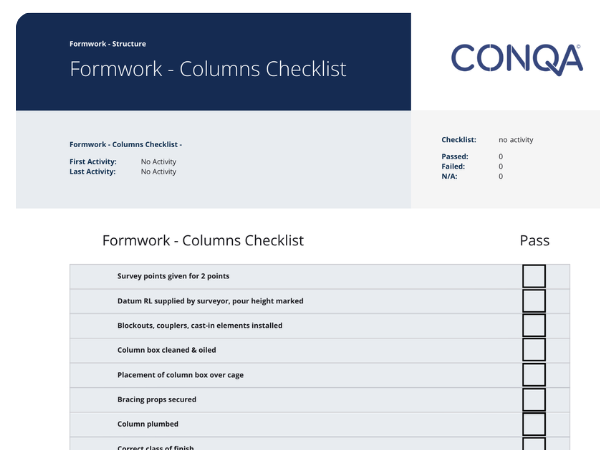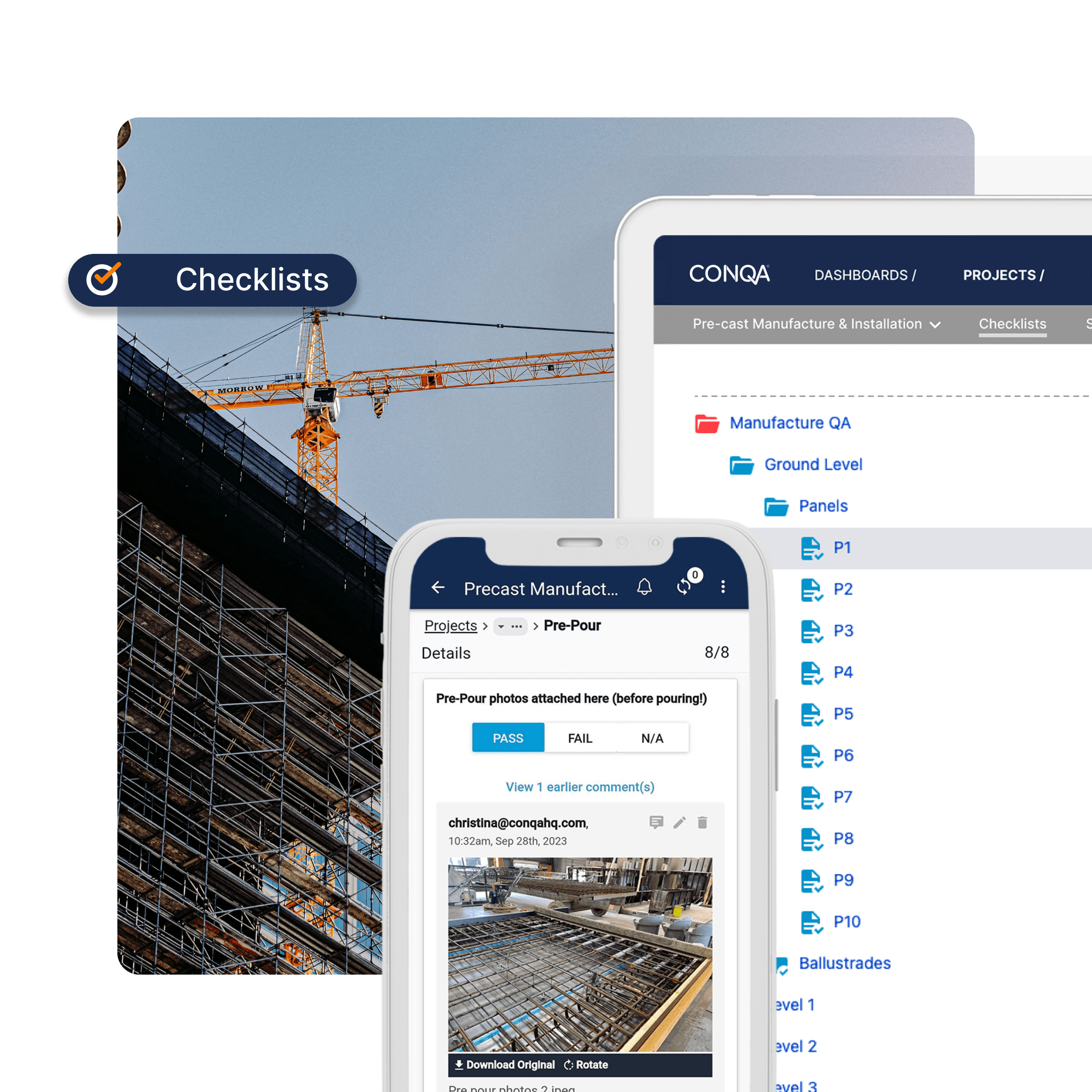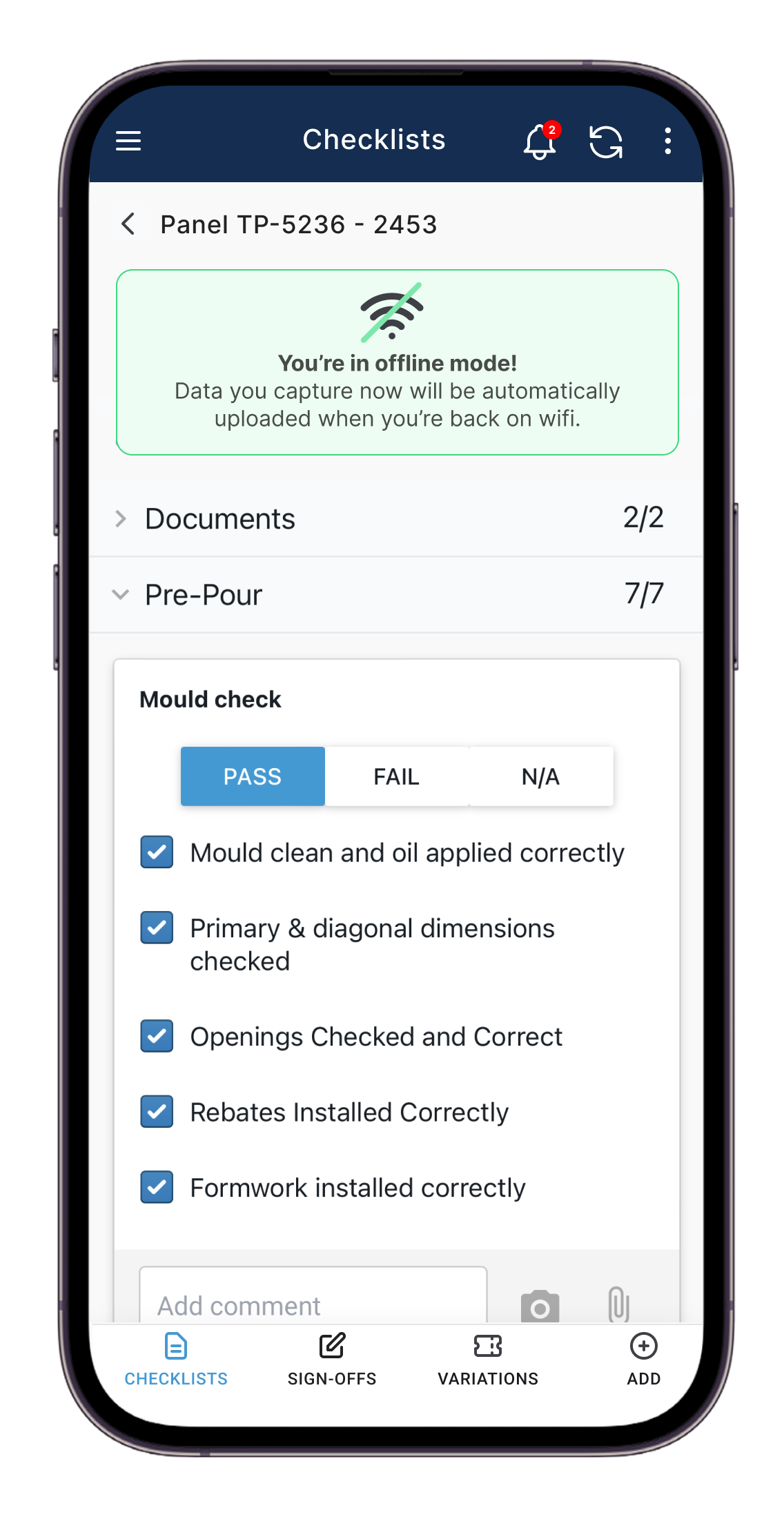CONQA BLOG
Resources built for construction and infrastructure site teams
.png)
BLOG
READ NOW
Wilson Plumbing boosts construction Quality with digital tools
WEBINAR RECORDING
WATCH NOW
Transforming Downer's Digital Journey
BLOG
7 reasons why construction teams should use Quality Assurance ITPs and Checklists
GET FREE ITP CHECKLIST
7 reasons why construction teams should use Quality Assurance ITPs and Checklists
BLOG
READ
QA vs. QC: What's the difference in construction?
BLOG
READ NOW
The fundamentals of Quality Assurance (QA) and it's impact on organisational performance
NEWS
READ
Remote control: The future of building consent inspections in New Zealand
INFOGRAPHIC
READ
How to manage quality assurance in infrastructure projects
WEBINAR RECORDING
WATCH NOW
QA: Build a solid foundation for success
BLOG
READ
The heart of Quality Assurance in Santa's Workshop
WEBINAR RECORDING
WATCH NOW
How Heyday Group unlocked the power of digital quality assurance
BLOG
READ NOW
Construction site efficiency: Mastering digital Checklists
GUEST BLOG
How to master QA processes
READ
How to master QA processes
plus the #1 thing to avoid!
WEBINAR RECORDING
WATCH NOW
Fulton Hogan transform their QA
PRODUCT FEATURE
READ
Capture evidence anywhere with CONQA offline mode
CONQA 30-Day FREE Trial
Get started with the one tool you need to prove progress onsite. Built for site teams and back office, CONQA makes it easy to capture evidence, track progress onsite, and report accurately. Let CONQA take care of the paperwork, so you can focus on running your team.







.png)

.png)



